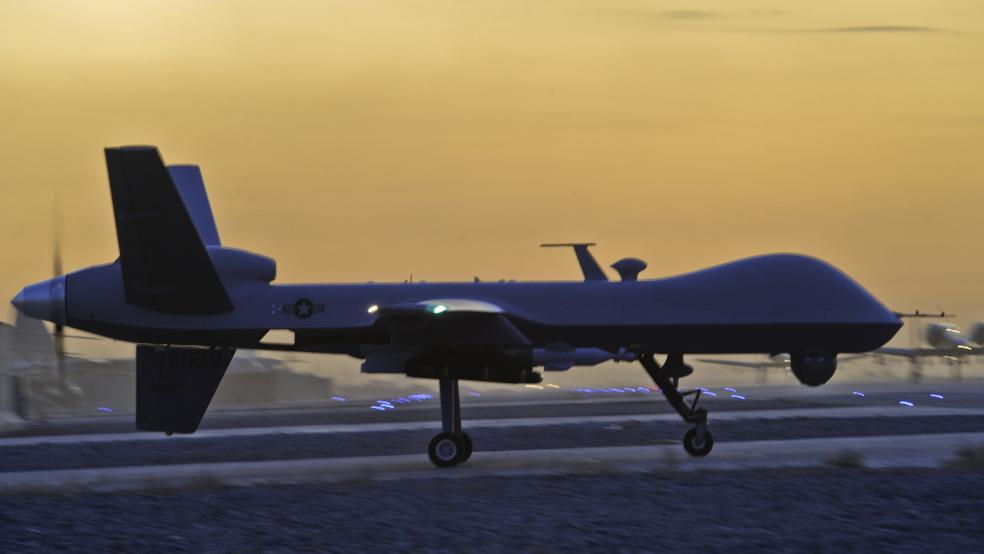The White House and the Pentagon have long accepted that drone warfare is here to stay, and both President George W. Bush and President Barack Obama embraced the technology that allows the United States to project military force -- usually in the form of a Hellfire missile -- to remote parts of the world cheaply and with little risk to American personnel.
But even as the Pentagon embraced drone technology for U.S. forces, lawmakers have created strict rules against exporting certain unmanned aerial vehicle technologies to other countries. The export ban was generally in place to preserve the United States’ technological advantage over competitors, but also to prevent cheap and lethal weapons from falling into the hands of unreliable foreign governments or terrorist groups.
Related: ISIS Is Arming Drones You Can Buy on Amazon
However, the market will always find a way, and now, as the Financial Times reports, a Chinese company that has been selling what appears to be a knock-off version of the General Atomics MQ-9 Reaper unmanned combat aerial vehicle is taking the first steps toward going public.
The unit of China Aerospace Science and Technology Corporation that manufactures the Caihong line of combat drones, as well as the missiles they fire, is expected to go public on the Shenzhen stock exchange, though the date is unclear.
The company held a rare press briefing, in which it revealed that its products are generally sold to foreign governments, for use against anti-government forces and terrorist groups.
In fact, as Adam Rawnsley reported in Foreign Policy earlier this year, Chinese drones, and the Caihong in particular, “are fast becoming the Kalashnikovs of the drone world — entry-level alternatives for countries eager to achieve a basic unmanned strike capability quickly and cheaply.
Related: The 10 Most Expensive Weapons in the Pentagon’s Arsenal
They have turned up on battlefields in Africa and the Middle East in increasing numbers in recent years, serving as a substitute for air power in countries that don’t have the means to field a modern air force. As an engineer at CAST told the FT, “We mainly sell to poor and middle-income developing countries.”
The Caihong drones are not believed to be as technically advanced or as capable as their U.S.-made relatives, and the decision to take the company making them public is not expected to change that. It does, however, probably speed up what most defense experts view as inevitable -- drones becoming available, by theft or official corruption, to terrorist groups.





